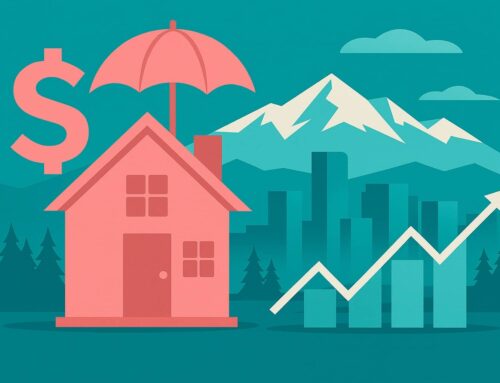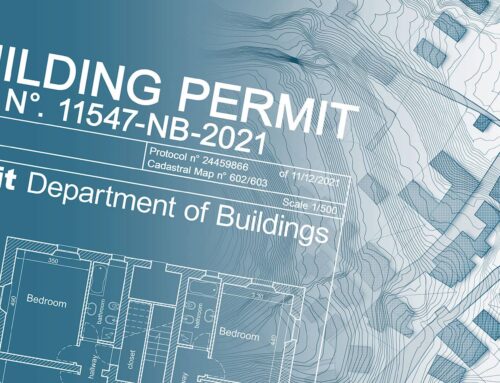
Is Colorado real estate overpriced?
Real estate in Colorado commands high prices for a variety of reasons. The state’s heightened cost of living, strong demand for homes driven by its natural beauty and economic stability, limited housing supply, high real estate taxes, and above-average mortgage rates all contribute to the pricey market. Bidding wars are common, and properties move quickly. The situation remains challenging with a deficit in housing units and fluctuating property tax rates. The issue also impacts workforce retention and the overall competitiveness of the state.
Key Takeaways
- Strong demand from a growing population and robust economy
- Limited housing supply leading to bidding wars
- High cost of living and above-average real estate taxes
- Natural allure and recreational opportunities driving demand
- Above-average mortgage rates impacting affordability
High Cost of Living
Colorado’s high cost of living presents challenges for residents and potential homebuyers alike, driven primarily by elevated housing prices and other necessary expenses within the state. Colorado residents face significant financial burdens, with an average annual cost of living at $53,374, which is 7% higher than the national average. Housing costs vary widely across the state, ranging from $200,000 to $800,000 in Durango and averaging over $1,000,000 in Boulder. Rental fees are also up, averaging $1,994 per month in Denver, influenced by real estate market health, property tax rates, and investment potential.
Moreover, transportation costs in Colorado contribute to the high cost of living, with residents spending 11% more than the national average in this category. On the other hand, utility expenses are 9% lower than the national average, with an average monthly cost of $331 covering water, electricity, gas, and cable/internet.
Strong Demand for Homes
Given Colorado’s current real estate terrain, the demand for homes is markedly strong, driven by various factors, including the state’s natural allure and recreational opportunities. Colorado’s scenery, outdoor activities, and quality of life attract buyers seeking a lifestyle that combines urban amenities with easy access to nature. Furthermore, the state’s robust economy, low unemployment rate, and thriving job market contribute to the influx of individuals and families looking to establish roots in Colorado.
Moreover, the pandemic fueled a desire for more spacious and functional living arrangements, prompting a surge in home-buying interest. Consequently, buyer competition has intensified, leading to bidding wars and quick property turnovers, even in the high-interest rate landscape of 2024 real estate. Colorado residents also tend to hold onto their homes, leading to limited supply and further driving up demand.
Limited Housing Supply
The estimated housing unit deficit in the Denver metro area for 2023 ranged from 45,025 to 115,012 units, indicating a significant gap between supply and demand. In light of the pressing need for more housing, new housing permits in 2023 dropped, hindering efforts to close this supply gap. The distribution of permits in the Denver metro area revealed that while 43.2% were for single-family units, a higher share of 56.8% pertained to multi-family units. This imbalance contributes to the persistent housing shortages in the region. Furthermore, the need for more consensus on zoning and building code reforms further complicates the situation. As Colorado grapples with a housing crisis that affects workforce retention and state competitiveness, addressing the limited housing supply remains a critical priority for sustainable growth and development.
High Real Estate Taxes
With property values rising across various Colorado regions, the impact of high real estate taxes is becoming increasingly significant for homeowners and local communities alike. In parts of Western Colorado, home values have surged by 55%, while Pitkin County witnessed an average 80% increase in home value. Douglas County homes on the Front Range saw a 40% appreciation in value, contributing to the average Colorado home value rising by 37% over two years. Garfield County also experienced a substantial 45% increase in the average home value. Property taxes in Colorado play a vital role in funding local governments, schools, arts districts, parks districts, and fire protection districts, with schools alone receiving over half of property tax revenue. The variability in property tax rates from county to county and even block to block underscores the intricate terrain of real estate taxation in the state. Moreover, recent legislative changes allowing for temporary reductions in property tax rates aim to lessen the burden on homeowners facing escalating property values.
Above-Average Mortgage Rates
The current mortgage rates in Colorado, as of May 24, 2024, are notably higher than the national average, posing a challenge for prospective homebuyers in the state. With interest rates at 7.13% for a 30-year fixed mortgage and 6.53% for a 15-year fixed mortgage, Colorado residents face increased costs when financing their homes compared to the rest of the country. This higher rate environment, coupled with a 5.3% year-over-year increase in the median single-family home sale price as of April 2024, puts significant pressure on housing affordability in Colorado. Despite the potential for tapping into increased home equity through cash-out mortgage refinancing, the prevailing consensus suggests that mortgage rates are likely to remain elevated above historical lows for the foreseeable future. Prospective buyers and current homeowners in Colorado must carefully consider these above-average mortgage rates when dealing with the state’s real estate market.
Conclusion
In conclusion, the soaring real estate prices in Colorado result from a complex interplay of factors such as the state’s high cost of living, strong demand fueled by its natural beauty and economic stability, limited housing supply, high real estate taxes, and above-average mortgage rates. These elements have created a challenging environment where bidding wars are common, properties move swiftly, and the deficit in housing units continues to impact workforce retention and the state’s overall competitiveness.
Are you feeling overwhelmed by the high prices and fierce competition in Colorado’s real estate market?
It’s time to take action and secure your dream home with the help of a knowledgeable real estate agent! As you navigate the complexities of Colorado’s expensive real estate landscape, trust in our expertise to guide you through bidding wars, limited housing supply, high real estate taxes, and above-average mortgage rates.
Don’t let the challenges deter you from finding your perfect property in this stunning state. Contact us today and let’s work together to make your homeownership dreams in Colorado a reality!







